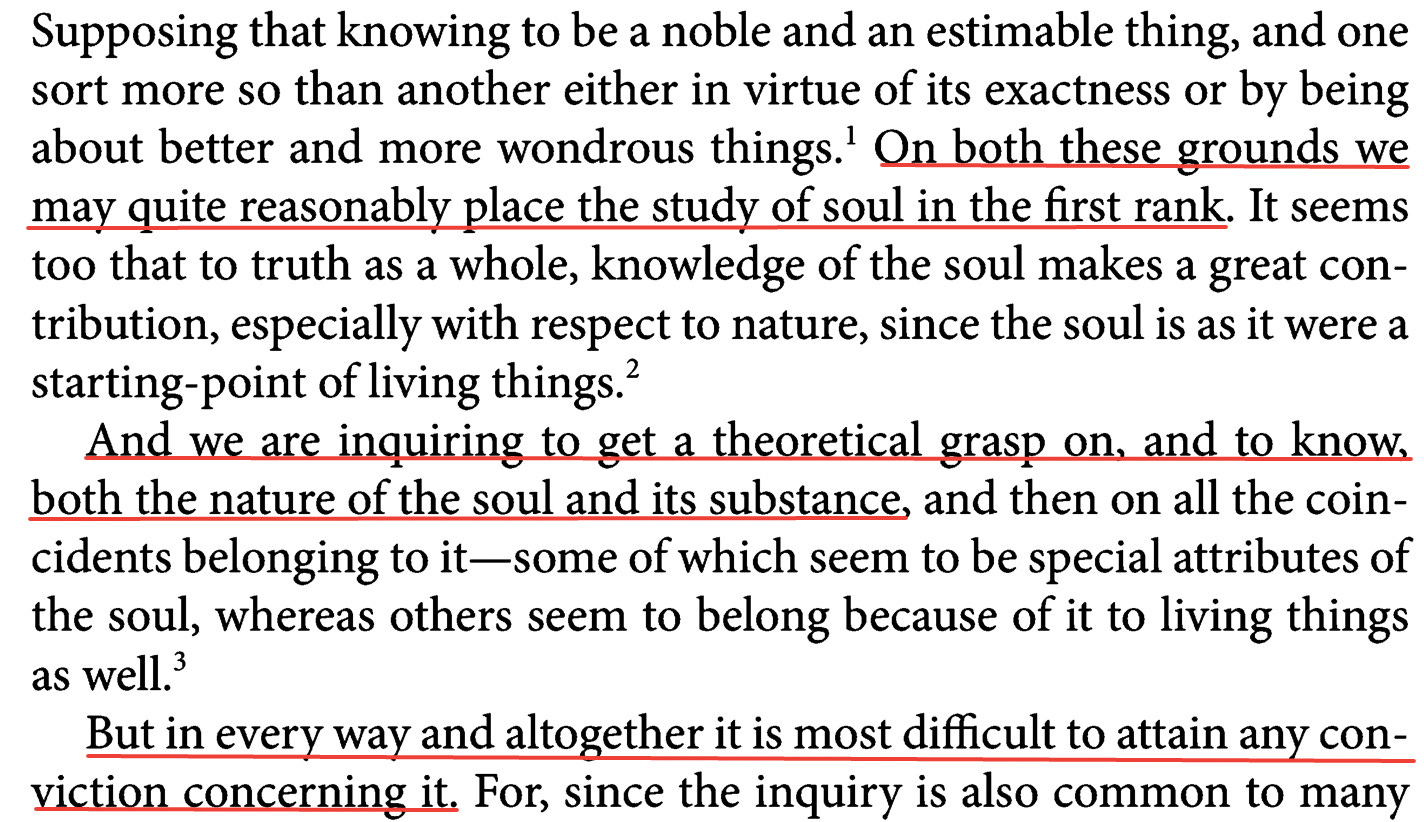The Book of Minds 1
What is the Mind and Who has one?
PS: The what and the who aren’t accidentally paired: there’s a strong intuition that there’s no mind without a minder (unlike matter, where we don’t have a sense that a mass or charge must come with a mass bearer or a charge bearer.
One of the earliest answers to that question is Aristotle’s, who starts his work on the mind (De Anima, ‘On the Soul’) so:
Substitute ‘mind’ for ‘soul’ (which also gets rid of its religious connotations) and not much has changed since he wrote these words. We still think the mind is a wondrous thing that needs to be studied with exactness. We are still inquiring to get a theoretical grasp on the nature of mind and its substance and we still struggle to attain any conviction about it.
Actually, Aristotle had a more expansive concept than most of us do. He says:
There’s a miserly approach to the mind, often attributed to Descartes, in which only human beings have minds. The Cartesian account is regressive, for Aristotle is already aware of a tendency to restrict our inquiry to human minds alone and wants to make sure we include animals in our exploration. Beyond Aristotle lie even more expansive theories such as panpsychism, in which everything has a mind: the birds and the bees for sure, but also the raindrop and, perhaps, even the rainbow.
These positions aren’t idle speculation; they influence how we frame our studies and what experiments get done. If all animals have minds, then the central features of the mind can’t be things like language that most animals don’t possess. When I look into my dog’s eyes, I see another being staring back. But that kinship is harder to feel when you swim alongside a jellyfish. Aristotle will ask us to pay attention to both creatures. Let’s pay attention to those subtleties as we read Ball, who also starts his book with warnings about anthropomorphism.





